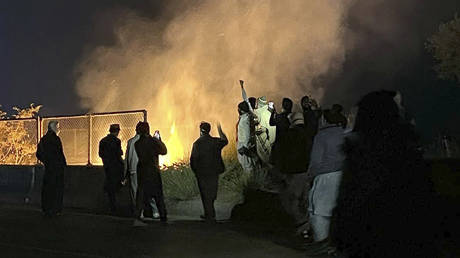Sometimes, reporters at a press conference stop short of asking questions that need to be asked. Sometimes, a reporter will go a little too far, loading the question with a sentiment held by the reporter to someone other than the reporter.
That happened during Wednesday’s midweek Shedeur Sanders press conference. This question was asked: “Hey Shedeur, not from you, but all your supporters out there say that Kevin Stefanski was sabotaging you.” (Here’s the video of the exchange.)
It wasn’t even a question. It was an effort, by all appearances, to provoke Sanders into providing a controversial soundbite.
Sanders didn’t take the bait. “So, you just want to start trouble, huh?” Sanders said.
Said the reporter in response, backtracking quickly from the “sabotage” angle: “No, I want to ask you what your relationship with him is.” (No, you just wanted to start trouble. Otherwise, you would have asked that question in the first place.)
“Yeah, well, what people do outside the building isn’t really in my control, it’s not in my power,” Sanders said. “So, I don’t — you act like I go out there and tell them to do whatever, you know, that’s nothing I can control or nothing I could do. But, overall, you know, I’m just happy to be here. Coach Stefanski been coaching since I got here, and he’s been doing a very great job, you know, with everything that’s going on.”
The reporter added one more effort to save face. “But what is your relationship like with him when we don’t see you guys together?” the reporter said.
“Definitely like a coach,” Sanders said. “He tells me what I need to do on and off the field. We’ve definitely grown. Our relationship and everything has grown, so I’m just thankful to be here.”
It really was a stunning moment. And while various conspiracy issues have emerged regarding the decision to bury Sanders at the bottom of the depth chart for as long as possible, they’re as goofy as most of the conspiracy theories currently polluting social media.
To the extent that anyone is inclined to defend the question, look at how the non-question was worded.
“Hey Shedeur, not from you, but all your supporters out there say that Kevin Stefanski was sabotaging you.”
A non-troublemaking question would have gone like this: “Shedeur, you’ve surely seen some of the crazy conspiracy theories out there about why you didn’t play sooner or why you hadn’t gotten any first-team reps before the first time you were asked to play in a game. Do you have any message for those supporters of yours who think these things?”
Of course, that question wouldn’t have potentially pressed the desired button, with the goal of getting Sanders to say something inflammatory.
Recently, after Jets running back Breece Hall reacted angrily to a simple question posed to quarterback Justin Fields during a mandatory media availability, we defended the fact that reporters are there — and the invitation of the league — to do a very specific job. There’s still a responsibility for the reporters to ask fair and respectful questions in a way that isn’t designed to trigger an angry response.
In this case, the question could have been as simple as this: “What do you say to those who claim your NFL career is being sabotaged in some way?”
Instead, the non-question was stated as fact. And Sanders recognized it, immediately.
Bottom line? When players or coaches say something that deserves criticism or scrutiny, they get it. Reporters shouldn’t be immune from that, either, when they ask a question that objectively crosses the line.
Especially when it’s not even phrased as a question.





